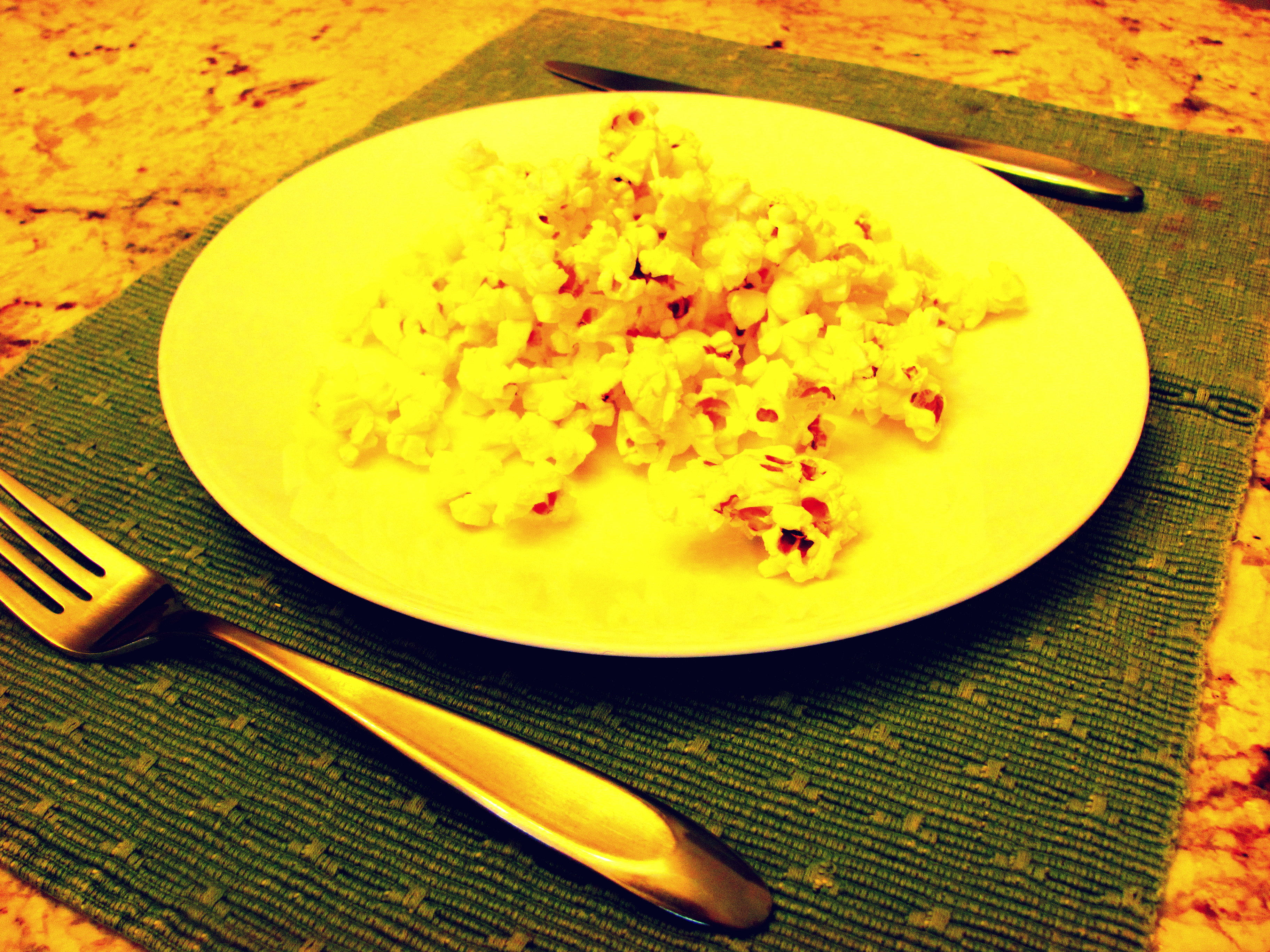I eat fast. I love taking huge mouthfuls of food and I’m usually the first one finished at the table. Maybe it’s because I’m Italian and have spent years becoming comfortable stuffing my mouth with large, heaping forkfuls, roped in spaghetti.
Besides eating quickly, I often find that when I eat I need something to do. As if the single act of eating isn’t entertaining enough, I read nutrition information on the back of cereal boxes, flip through magazines or gaze at coffee-stained study notes. Sometimes I even eat standing up or on a moving subway train.
However, when we eat quickly, we find that we don’t concentrate on the experience of eating. We let the act pass us by and, without warning, find ourselves staring at an empty plate. This results in us feeling less satisfied after a meal and often eating more than our fill. Eating quickly and “mindlessly” can be attributed to the high rates of irritable bowel syndrome, food allergies and obesity that we see in our population. One of the best pieces of nutritional advice I’ve received is, rather than focusing on what to eat, we should be focusing on how to eat. So, taking a page from a Buddhist’s book, here are some tips on how to integrate mindfulness into your eating practice.
1) Make each meal a real meal. Rather than eating on the run, straight out of the bag/box or standing up, set out a place-mat (even if you’re alone) and utensils, dole out a portion of food on a plate and sit down to enjoy it. Also, adding a glass of wine can only ever help.
2) Focus on each bite. My grandfather legendarily chews each bite of food 20 times. Well, I’ve tried to do that and found it impossible. However, I find that it helps to simply experience the food in my mouth, the texture and the flavours. I pay attention to the (few) bites I take, experience the mouth-feel of food and appreciate the quality. How many fast-food or processed meals have we raced through only to find that, when eating the same food again, this time really paying attention, we realize the food actually tastes like crap? Likewise, if we eat mindfully, a simple carrot can be the sweetest, most delicious thing we’ve tasted.
3) The dinner table is a sacred space. When mealtime conversation is loud, rowdy and tense, it becomes hard to focus on our food and digest. The optimal digestive atmosphere is calm, non-stimulating and restful. Conversation should be light, and focus should be on eating. Our Asian Medicine professor always tells us that, in Chinese cafeterias, all that can be heard is the clanging of spoons on bowls; loud chatter during mealtimes is frowned upon in the Chinese culture simply because a quiet dining area is crucial for proper digestion.
4) Start each meal with gratitude. Even silently saying thank you before chowing down is enough to set the tone for the meal. Each ingredient traveled a long way to get to our plates and required effort from generations of farmers who dedicate their lives to growing the food that we so rapidly inhale. Because we are disconnected from the process of growing most of the food we eat, the journey the food takes to get to our plates and, oftentimes, the process of cooking the food we eat, we become disconnected from food itself. We develop a disconnected relationship with food in general and, because food ultimately becomes our bodies, we grow disconnected to ourselves. Taking time to appreciate the food on our plates is an important step in cultivating bodily awareness.
5) Do most of your own cooking. Food preparation can be a mindful process in and of itself as well as an opportunity to unwind at the end of a long day, rather than simply another task on the to-do list. Focusing on the experience of chopping vegetables and measuring ingredients, combined with smelling the cooking food can help begin the process of digestion and create a relationship with the meal you’re about to eat.
6) Grow something edible. Even when living in a small apartment in a large city, J and I grew small plants and herbs in a window planter box. We had basil, cilantro, calendula and mint growing outside our window, whose leaves we would regularly pluck to add to various recipes. Even our modest garden was enough to connect the process of growing our food to the act of ingesting it, developing more awareness about what we put into our bodies.
Establishing a connection with food – the act of growing, preparing and mindfully eating the food we ingest every day – increases the connection we have to our bodies. It helps us experience the act of eating, become more aware of what and how much we put into our bodies while cultivating satisfaction and appreciation for the food we eat.









Great advice. I also eat way too fast and my fiancé even faster. Paying attention to how I eat rather than what I eat is easy and makes so much sense. I’ll keep your list in mind for my next meal 🙂
I need to keep reminding myself as well! Good luck and thanks for the comment!
Great Post & Great Advice! I like to do most of the cooking because then I know what I am putting in my food and body. Happy Monday:)
Thanks! You too!